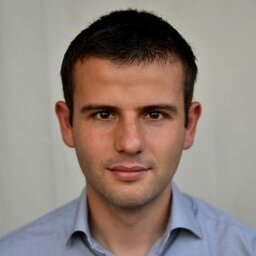Abstract: Modeling and inference with multivariate sequences is central in a number of signal processing applications such as acoustics, social network analysis, biomedical, and finance, to name a few. The linear-Gaussian state-space model is a common way to describe a time series through the evolution of a hidden state, with the advantage of presenting a simple inference procedure due to the celebrated Kalman filter. A fundamental question when analyzing multivariate sequences is the search for relationships between their entries (or the modeled hidden states), especially when the inherent structure is a directed graph. In such context, graphical modeling combined with parsimony constraints allows to limit the proliferation of parameters and enables a compact data representation which is easier to interpret by the experts. We propose a novel expectation-maximization algorithm for estimating the linear matrix operator in the state equation of a linear-Gaussian state-space model. Then, we focus on non-linear and non-Gaussian models where Kalman filters cannot be used. We revisit particle filters which are the de facto inferential tools for such models. We discuss alternative theoretical derivation of existing filters and propose new family of methods with superior performance.
Bio: Víctor Elvira received his M.Sc. in telecommunications engineering in 2007 and his Ph.D. degree in wireless communications in 2011, all from Universidad de Cantabria. From 2012 to 2016, he was with the Department of Signal Theory and Communications at University Carlos III of Madrid (as postdoctoral researcher and Assistant Professor. In 2016, he joined the engineering school IMT Lille Douai (Spain) as Associate Professor. In September 2019, he joined the School of Mathematics at the University of Edinburgh where he is currently an Associate Professor (Reader). He has also been a visitant researcher at several institutions such as Stony Brook University of New York (USA) as a Fulbright scholar, or Paris-Dauphine University (France). Dr. Elvira's research interests are in the field of statistical signal processing and computational statistics, in particular in Monte Carlo methods for Bayesian inference with different applications including sensor networks, wireless communications, target tracking, ecology, and biomedicine.

Other views and ways to subscribe
Venues included in this list
This list does not include any venues
Note that ex-directory venues are not shown.
Lists included in this list
This list does not include any other list
Lists that include this list
This list is not included in any other list
Note that ex-directory lists are not shown.


